This article was co-authored by Jurdy Dugdale, RN. Jurdy Dugdale is a Registered Nurse in Florida. She received her Nursing License from the Florida Board of Nursing in 1989.
This article has been viewed 28,404 times.
A tonsillectomy is a minor surgical operation to remove the lymphoid tissues in the back of your throat. The surgery is relatively non-invasive and young patients can often go home after it is done or with an overnight stay, though older ones may have to spend a few days in the hospital. To recover properly after a tonsillectomy, you can do home care and take medication. See your doctor if you are not recovering well or if you have questions about your recovery.
Steps
Doing Home Care
-
1Arrange a ride home from the hospital. After the tonsillectomy, you may feel groggy and in pain. Prepare for your recovery by arranging a ride home from the hospital after the surgery. Ask a friend, family member, or roommate to pick you up. You can then head right home to recovery fully from the tonsillectomy.
-
2Drink lots of water. Stay hydrated by having lots of water after the operation. Have eight to ten glasses of lukewarm or cool, filtered water. Keep a glass of water by your bed or couch and carry a water bottle with you if you are moving around your house.[1]
- Avoid hot liquids such as hot chocolate, coffee, or tea for the first week. Hot liquids can irritate your throat.
Advertisement -
3Have soft, bland foods. Bland foods that are soft and easy to swallow are the best options post-surgery. Have applesauce, vegetable or chicken broth, baby food, baby rice, and pudding. You can also have soup, such as a blended vegetable soup. Go for foods that will provide nutrients and energy, without irritating your throat.[2]
- Avoid acidic, spicy, and crunchy foods, as they can cause pain and bleeding.
- You can also try sucking on ice pops to help soothe the pain.
- If you are in a lot of pain after the tonsillectomy, you may need to arrange for someone to help you prepare food for you for the first several days. Ask a friend, partner, or roommate to help you.
-
4Rest for several days. Stay in bed during the first several days after the tonsillectomy. Avoid strenuous activities like running and bike riding for at least two weeks post surgery. Try not to return to work for the first week and rest in bed or on the couch instead.[3]
- You can usually return to normal activity, such as work, after you can eat a normal diet, sleep through the night, and do not need to have pain medication.
- Your doctor can also tell you when you are well enough to return to normal activity.
Taking Medication
-
1Have pain medication. Take over the counter pain medication to help ease any discomfort. Do not take aspirin, as this can increase your risk of bleeding. Instead, have NSAIDs (Non-Steroidal Anti-Inflammatory Drugs) like Tylenol or Ibuprofen.[4]
- Always follow the dosage instructions on the label. Do not take more than recommended.
- Have pain medication with a meal or food to help your body digest it properly.
-
2Take antibiotics, if necessary. Most people who have a tonsillectomy are put on antibiotics to help prevent infection. If you are at risk of infection, your doctor may also give you antibiotics to take as part of your recovery. Take them according to your doctor's instructions.[5]
- You cannot have alcohol when you are on antibiotics.
- You may want to take probiotics along with the antibiotics to help your body recover.
-
3Get prescription pain medication from your doctor. If your pain is severe, your doctor may give you prescription pain medication. This is not usually done unless your tonsillectomy is causing you major pain, or you have other health issues that require prescription pain medication.[6]
- If the pain is severe and does not go away with pain medication, you should see your doctor for a check up. Extreme pain after the first 48 hours may be a sign that your tonsillectomy is not healing properly.
- Your doctor may prescribe an analgesic throat spray for the back of the throat, too. This will encourage healing and cut down on the pain.
Seeing Your Doctor
-
1Go to the doctor if you notice any excessive bleeding. If you notice a good deal of blood and bright red spots in your saliva or coming from your nose, go to the emergency room right away. Speak to your doctor about the issue. You may need surgery to stop the bleeding.[7]
- Small specks of dark (coagulated) blood from your nose or in your saliva is normal, so too small spots of red (fresh) blood. Bleeding tonsils yield about the same amount of blood as you would experience in a nosebleed.
- However, large amounts of bright red blood in big spots or specks is a cause for concern.
-
2See your doctor if you have a high fever. If you have a fever that is 102 °F (39 °C) or higher, go see your doctor. A high fever is usually a sign of infection and requires immediate treatment.[8]
-
3Go to the doctor if you experience dehydration. Signs of dehydration include headache, dizziness, lightheadedness, thirst, weakness, and reduced urination. If you notice you are feeling dehydrated, speak to your doctor.[9]
-
4See your doctor if you have breathing issues. It is normal to snore or having noisy breathing during the first week of recovery. But if you experience difficulty breathing, go see your doctor.
Warnings
- Tonsillectomies are fairly non-invasive, but still serious medical procedures. Expect longer healing times if your tonsils were infected at the time of surgery or if you've had repeated tonsillitis. In both of these cases, the tonsils will be larger at the time of operation – and larger tonsils need more minor sutures and have the most issues healing.⧼thumbs_response⧽
- Children recover most quickly from tonsillectomies that are done by procedure and not emergency. An adult who has had repeated infections will often take much longer to heal.⧼thumbs_response⧽
- Expect your doctor to prescribe antibiotics prior to surgery to ensure that there is as little infection as possible.⧼thumbs_response⧽
References
- ↑ http://www.mayoclinic.org/tests-procedures/tonsillectomy/basics/what-you-can-expect/prc-20019889
- ↑ http://www.mayoclinic.org/tests-procedures/tonsillectomy/basics/what-you-can-expect/prc-20019889
- ↑ http://www.mayoclinic.org/tests-procedures/tonsillectomy/basics/what-you-can-expect/prc-20019889
- ↑ https://www.drugs.com/cg/tonsillectomy-aftercare-instructions.html
- ↑ https://www.drugs.com/cg/tonsillectomy-aftercare-instructions.html
- ↑ https://www.drugs.com/cg/tonsillectomy-aftercare-instructions.html
- ↑ http://www.mayoclinic.org/tests-procedures/tonsillectomy/basics/what-you-can-expect/prc-20019889
- ↑ http://www.mayoclinic.org/tests-procedures/tonsillectomy/basics/what-you-can-expect/prc-20019889
- ↑ http://www.mayoclinic.org/tests-procedures/tonsillectomy/basics/what-you-can-expect/prc-20019889
About This Article
After a tonsillectomy, it’s normal to feel a little tired and out of it, so stay in bed to rest for the first few days. When you eat, stick to soft, bland foods like applesauce and chicken broth so you don’t accidentally irritate your throat and can be on the road to recovery faster. Remember to stay hydrated too by drinking around 8 glasses of water a day. Unfortunately, it’s normal to feel some pain after the procedure, and if this happens to you, you can take Tylenol or Ibuprofen. Just don’t take aspirin as this could increase your risk of bleeding. If you’re finding it hard to manage your discomfort with only over-the-counter medications, talk to your doctor about getting prescription pain medication. For more information from our Medical co-author, including what abnormal signs after your surgery mean you should see your doctor, read on!


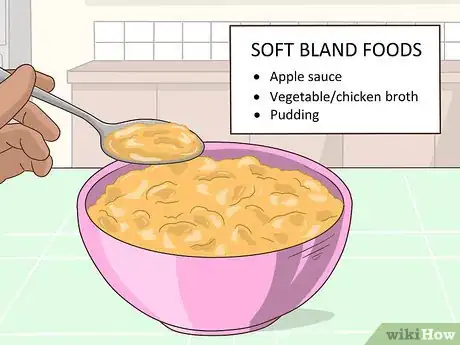
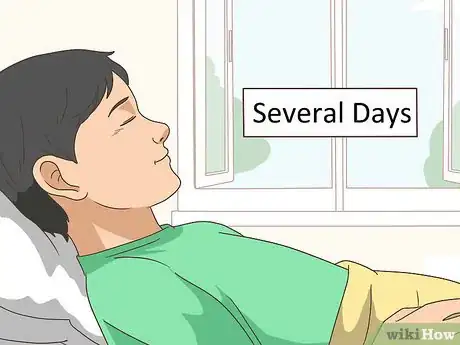
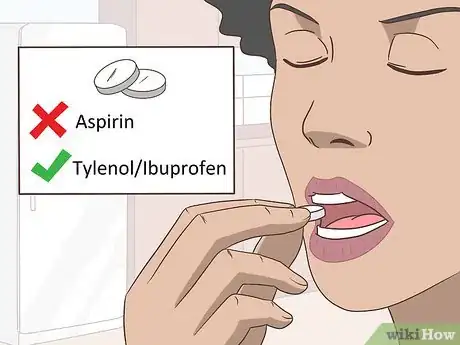

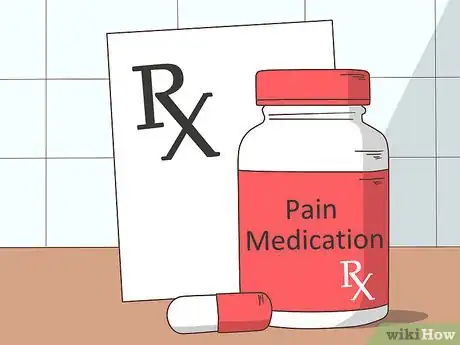
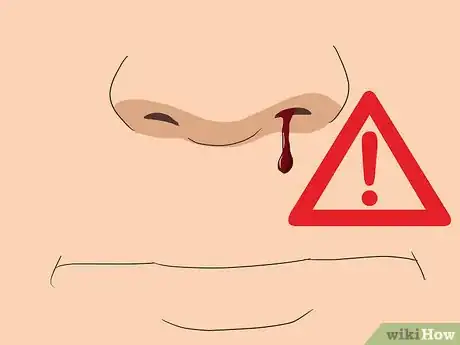
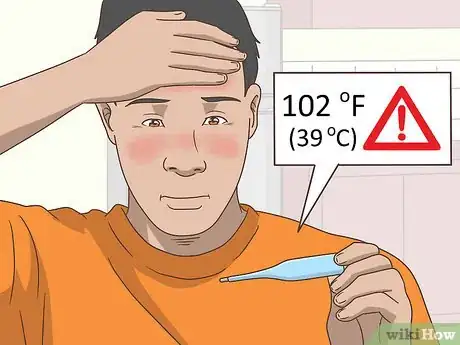
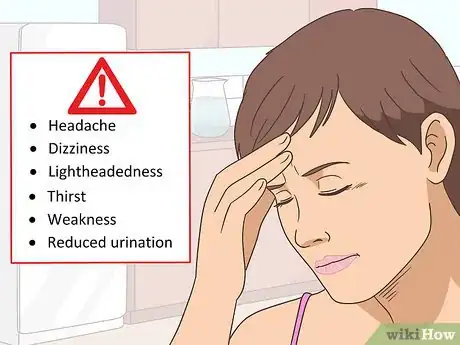

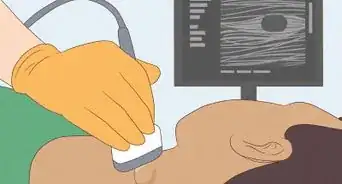



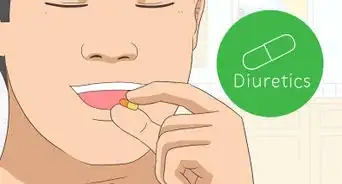
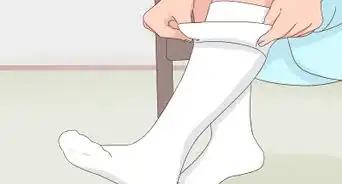
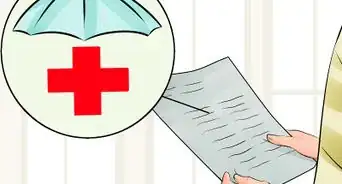





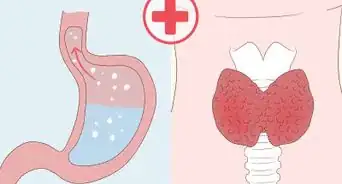












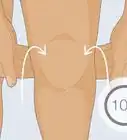



































Medical Disclaimer
The content of this article is not intended to be a substitute for professional medical advice, examination, diagnosis, or treatment. You should always contact your doctor or other qualified healthcare professional before starting, changing, or stopping any kind of health treatment.
Read More...